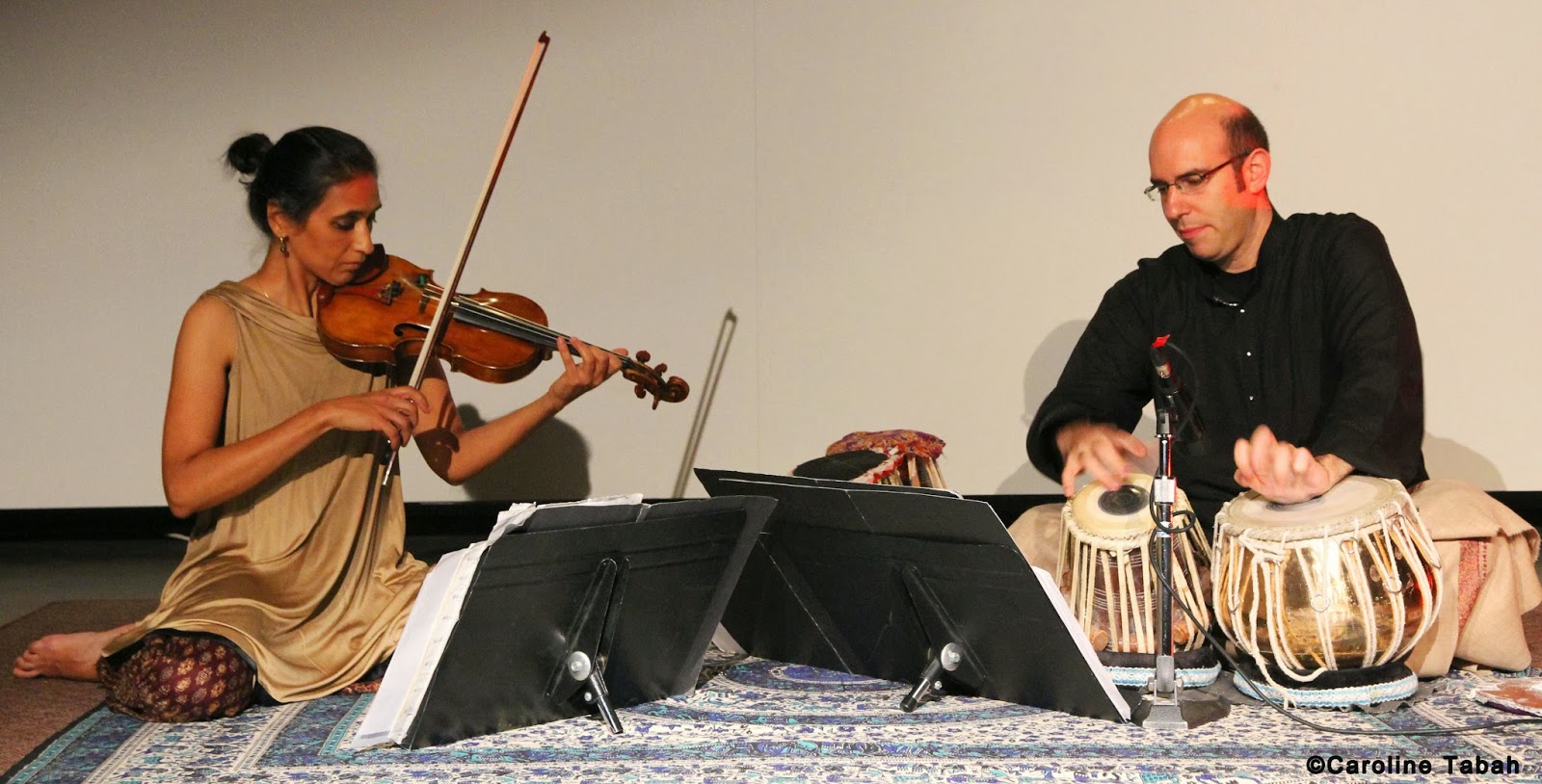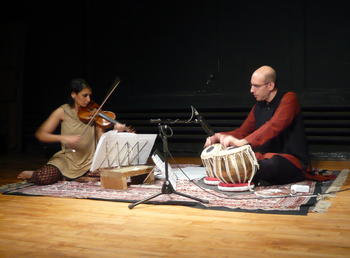Dance House, Wales Millennium Centre, Cardiff, 19 May 2016
Parmela Attariwala: violin, movement, electronics
Shawn Mativetsky: tabla, electronics
Music by: Parmela Attariwala/Gitanjali Kolanad; Meiro Stamm; Robert Rosen; Paul Frehner; Nicole Rampersaud; Andrew Staniland.
That Parmela Attariwala – classical violinist, composer, ethnomusicologist and one of Canada’s most interesting musical voices – and Shawn Mativetsky – composer, percussionist and world-class tabla player with fascinating connections across the Western and Indian traditions – performed in Wales solely for the Vale of Glamorgan Festival as opposed to part of a wider tour, is testament to just how established and respected this annual celebration of contemporary music has become. The duo’s collaboration, on the penultimate night of the festival, was both resoundingly international and dynamic.
Parmela Attariwala’s solo opening piece, Piercing Embrace, set the scene for what was to unfold throughout the concert. Fluid movement with lithe notes exquisitely combined to portray feminine representations and relations. The expressive Bharat Natyam-inspired body and eye movements, combined with Attariwala’s yogic control over body and violin, were simultaneously sensual and profoundly charged. The Wales Millennium Centre Dance House with its steeply banked seating provided an ideal vantage point from which to observe this compulsive dance element underpinning the music. To this end, it was an apt venue.

Mativetsky’s masterful, rhythmic rain-like pittering of the tabla provided punctuation and generated a shift towards a more connected narrative structure. The call and response that materialised between the duo in Meiro Stamm’s The Melody of Rhythm and the interaction between the plangent violin and vigorous tabla were, despite the piece’s compositional complexity, effortless to the audience. Even a couple of technical mishaps on the part of the WMC’s sound team did not affect the resonance of this piece.
For the remainder of the concert, notable works such as La by Robert Rosen, the first work commissioned by Attariwala for tabla and violin; Frank, in homage to a Toronto violin shop-owner; Oracle by Paul Frehner; and The Road Ahead is Longer Than the Trail Left Behind by Nicole Rampersaud, a thoroughly versatile jazz composer, were articulated with confidence. The playful relationship between various cultural conventions was both visually and sonically showcased with impressive, controlled energy across these pieces. The electronic drone provided togetherness. That for Oracle Mativetsky transcribed the part for tabla himself infused the piece with ownership and an individual flair.
It was this combination of jazz, classical, Western and Eastern sounds and experimental improvisation which provided the essence of the performance. The nod of head and/or eye-contact between musicians that is so much a part of chamber convention was apparent between the pair, and it translated into a dynamic seamlessness in performance. Albeit that the overall evening was a little disappointingly short, the performance completely absorbed.
The closing piece, Sudoku by Andrew Staniland, was most interesting. Attariwala’s sudden shifts between pace and volume were here complemented by the steadying, beating heart of the tabla. Whilst Attariwala seemed almost to treat each pluck, chop and spiccato with wondrous awe, Mativetsky’s tabla patterns provided the sudoku-determined parameters described by Attariwala. Natural sounds were invoked section by section, and the overall effect was logically satisfying in a way only numbers can be.
The pre-performance conversation between Attariwala, Mativetsky and Steph Power opened up the beginnings of multifarious discussions about identity and musical language. The performance successfully added substance to an already rich dialogue.











